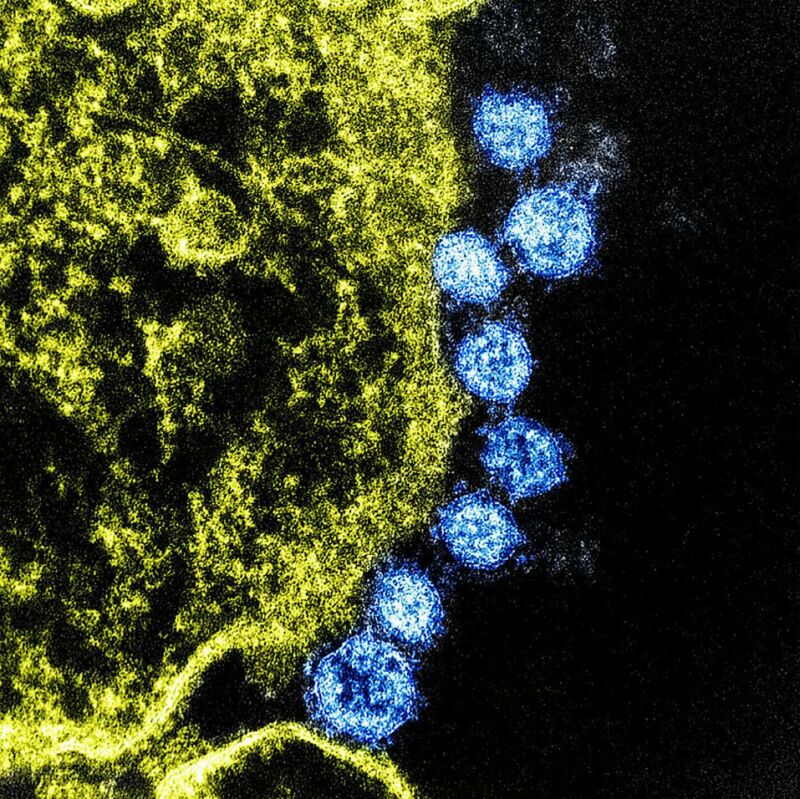
Enlarge / False color image of viruses attached to a cell's surface. (credit: NIAID)
While the SARS-CoV-2 virus is new to humans, coronaviruses in general aren't. There have been earlier members of this group of viruses that have raised pandemic fears, while another group regularly circulates widely in humans, causing symptoms of the common cold.
Early on, there were some indications that prior exposure to cold-causing viruses could produce a degree of protection against COVID-19. But back in December, researchers published results indicating that any cross-reactivity against related viruses by T cells was likely to be ineffective. Now, additional results have been published that indicate antibodies raised against cold viruses fail to neutralize SARS-CoV-2.
Memories
The SARS-CoV-2 virus has a number of features that distinguish it from other coronaviruses that have circulated within humans. But it also has plenty of things in common, like its use of RNA as a genetic material and the general layout of its genome. Some of its genes have also picked up very few changes over the course of evolution. As a result, there are some stretches of genes that are identical in cold viruses and SARS-CoV-2.
No comments:
Post a Comment